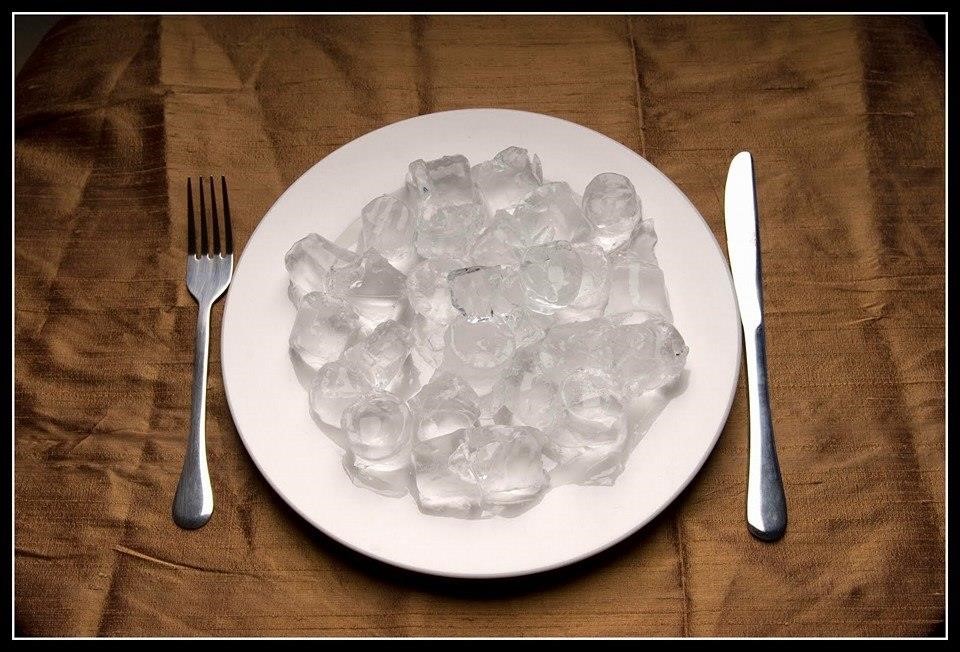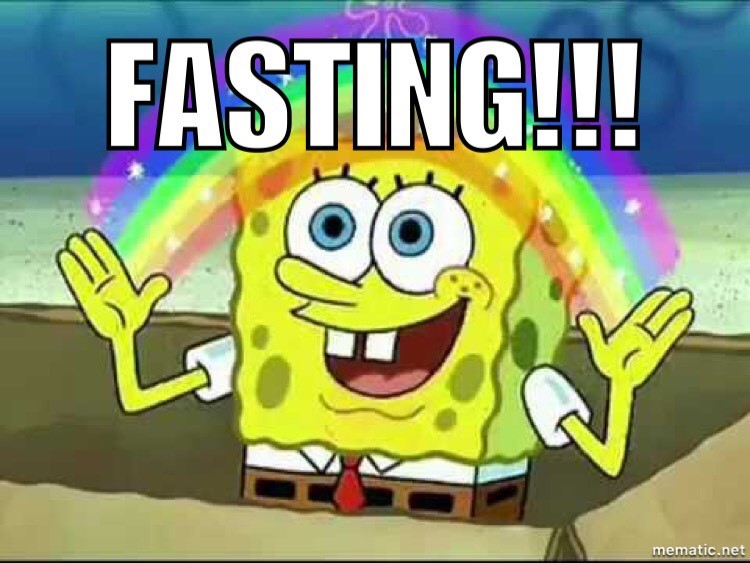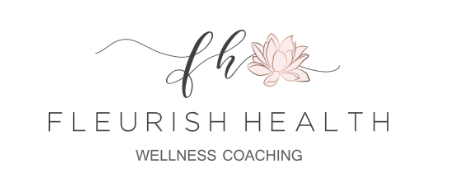
A topic that I see rather frequently when consulting with clients or having random conversations with cashiers at Walgreens and CVS, is that of the concept of “meals per day” or “timing of meals”. Being a non-believer of the “one size fits all” approach, it is always interesting to watch and hear others discuss their “trials and tribulations” with dieting, yet they continue to try the same thing over and over with no results. Or, on the other hand, they try a style of eating that works for them, but they don’t continue it because of either unrealistic expectations or the escape velocity from their Grand Canyon-like mental ruts is just far too great to exceed. Ipso-facto: they continue drudging along their same muddy path, but continue to “talk” about what they “will do” or “should be doing”. Do you know anyone like that?

Of course, we aren’t here to point fingers and “fit-shame”, you folk. We are here to discuss potential solutions to our endless supply of perceived health problems. So, what is a viable method that most people can attempt, that has some pretty significant health benefits?

I can already see into your cartoonist, three-dot head bubbles…….”Fasting?!?!?”

First off, fasting does not equal starvation. They are two completely different things. Although some of you, deeply entrenched within our Cajun hedonistic gluttonous lifestyle, will surely disagree. Again, we aren’t here to argue and verbally tussle, but if you feel so inclined, I’d love to set aside some time to debate your take on how Mardi Gras came to be….. (I kid. I kid)
So, what does one mean when they say “fasting”? Well, as usual, it depends. There are many different procedures for fasting that exist today. Like it or not, all of you reading this partake in it one way or another. Primarily, when you sleep each night. But, fasting doesn’t have to take place for extended periods of time in order for you to reap the benefits of it. Most of the time, people can experience significant results and progress by, not only making better food choices, but by spacing out their meals further than they normally would. The current research on fasting and its benefits are far too vast to be contained to the simplicity of this here newsletter. So, with that in mind, I won’t attempt to state its case scientifically. As usual, I will merely attempt to lay out the takeaways and immediate applications. Of course, none of the following are guarantees, and roadblocks usually find a way to present themselves in due time.
In laymen’s terms:
- Everyone is different.
- ust because one application or facet of fasting doesn’t work for you, doesn’t mean that trying a different route won’t.
- Just because one application or facet of fasting DOES work for you, doesn’t mean it will continue to carve and shape the Adonis-like potential we all feel we have hidden beneath our exterior shell. I know, I know; if only it were that easy.
Okay, with that said, here goes nuffin’:
What are some benefits of fasting?
- Weight tends to fall off a bit faster:
- For those who feel as though it is somehow “necessary” to eat all the time, well that just might not be so. I have touched on this in the past, but the appearance is that when those folks who forage and snack ALL DAY LONG, actually take time to drink water and not eat, they magically lose weight and body fat. Who wudda thunk it?!?!
- The body is forced to burn “stored energy”:
- While you sleep, your body is forced to switch into more of a fat burning mode in order to get you through the night. It will also pull from your Liver’s glycogen stores in order to meet any necessary glucose needs. Well, once you wake up, if you don’t shove food into your mouth as soon as the alarm clock sounds, your body must adapt to that as well. Which means prolonging the fast that you initiated with sleep. If hydrated properly, the body will continue to push more fatty acids into the bloodstream (from your stored body fat of course).
- Growth Hormone tends to increase:
- I have mentioned before how it isn’t always the best idea to eat prior to exercise. Unless you are an avid fitness enthusiast who is more concerned with performance over aesthetics, eating beforehand won’t always get you the results that you desire. It doesn’t completely negate the exercise (because that would be just silly and lazy to think that way), but it does force your body to burn the energy that you have just consumed and not your stored energy. This is why I usually recommend just taking in some BCAA’s prior to training then refueling and replenishing carbs and protein AFTER exercise is complete. While training in a fasted state, Growth Hormone has the potential to increase drastically. “How drastically, T?” Up to 1300% drastically. And I don’t care who ya are…… Er’ body wants more Growth Hormone. Why? Because it is responsible for increasing fat burning, recovering and growing lean muscle, and keeping your skin smooth and youthful.
- Mental acuity and clarity improve rather significantly:
- More often than not, those folks that are used to eating a rather large breakfast, while switching to fatty coffee or just prolonging their window of morning fasting, notice a significant boost in mental clarity. Fasting promotes the production of ketones by the liver, which are basically a cleaner more efficient fuel source for the brain as opposed to that of a flood of glucose that is produced after consuming whole wheat bagels and gluten free Lucky Charms.
- Improves overall energy:
- This one ties to the one above, but it is important nonetheless. Ironically enough, not eating first thing in the morning can have some pretty profound positive effects on one’s energy levels. For one, you don’t need 32 oz of coffee just to pay one iota of attention. (Sweet ROI right there, bro.) Most tend to think that if they skip just the carbs with breakfast, that they can achieve the same state of energy as they can with skipping a meal altogether. And in some cases, they can. But, as always, I implore you to trial and test some different approaches nutritionally and see how that plays out for you. What questions come up after you try it? It may not always result in optimal ways, but what could you learn from trying something different?
- It boosts immunity and longevity:
- We could get real science-y, real quick when discussing this topic, but bottom line is that during times of fasting, the body is able and forced to improve its immunity mechanisms. For one, fasting is a mild stressor. So, the body usually comes out on the other end of it, stronger. A little is good. Too much fasting and you don’t exactly glow with immunity:

- It improves the body’s ability to fight inflammation:
- Here’s the biggy. From making you store more body fat, increasing blood pressure, and riddling your arteries with blockage, inflammation is truly a human’s worst enemy. We talk A LOT about fighting it and mitigating it, but truth be told, the body is actually super-efficient at clearing its own inflammation when the environment is set up appropriately. Fasting restores proper pH balance in the blood. Too much acidity in the blood can lead to acidosis, which leads to debilitating ailments like arthritis, which leads to a hobbling shadow of your younger, less inflamed self. Fasting works to clear acidosis from the bloodstream and restore the proper alkaline-acidity environment for your body to thrive. Couple fasting some of the day, and breaking the fast with your greens powder…… Viola’! Natural Anti-Inflammatory!
What you have just read is literally scraping the surface of the vastness of fasting research and application. There are also several forms of fasting. You can just do smaller, intermittent fasts with just water. Or you can add in bone broth as your first meal of the day. Even MCT/Coconut oil is a form of fasting because you are not triggering insulin production first thing in the morning. But the point that is intended for you to take away is that it isn’t necessary to eat 3-6 meals per day in order to not enter “starvation mode”.
If you have been drinking 2 diet cokes per day while snacking on three 100 calorie packs of Cheez-its for 2 months, fasting might not be your best option. But if you have been eating 3 healthy meals per day for some time now and are not training for an Ironman or marathon, you can probably benefit from replacing one meal with a cup of broth or just tea/water. The anti-cancer benefits, alone, should be enough to grab most of your attention. If not, then that’s fine too. Just know that it is always an option. I have introduced some form of fasting in most of my client’s routines. It doesn’t always resemble a short famine. More often than not, we find a way for them to experience the benefits of fasting without wanting to gnaw their spouses arm off. (I can only speak to that in regards to the fasting….. You are on your own with the rest.)
If you are interested in “how” you can try it, just ask. If you are interested in “why”, there is ample research out there to promote the plethora of benefits that fasting brings with it. But to shun and condemn the practice altogether without even giving it a chance, well that’s not very nice, and last time I checked, it is still Lent. Have a heart.


